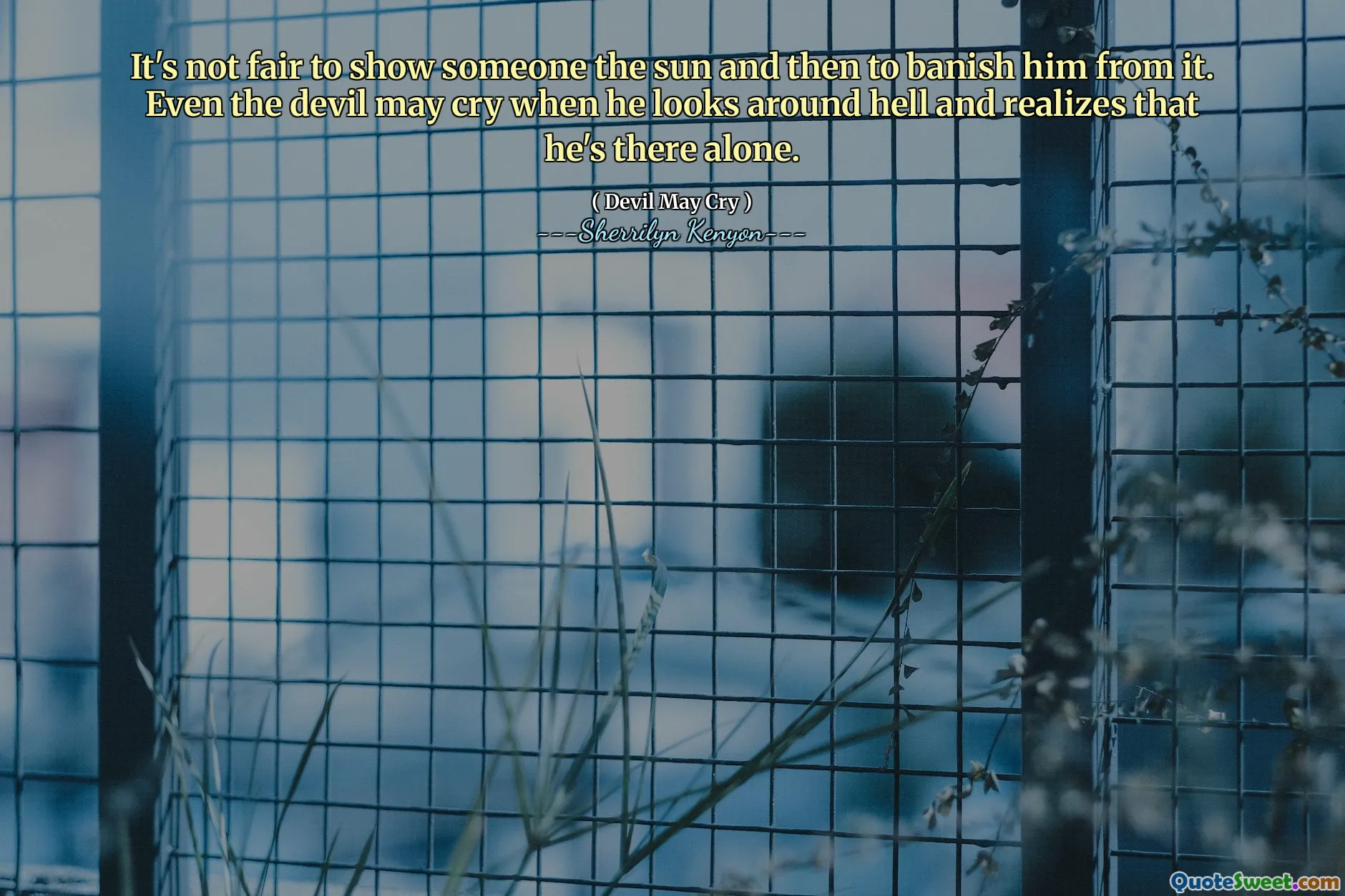
It's not fair to show someone the sun and then to banish him from it. Even the devil may cry when he looks around hell and realizes that he's there alone.
This quote poignantly captures the profound sense of unfairness and isolation that can stem from denying someone access to what they have known or been drawn to. The metaphor of showing someone the sun—representative of hope, joy, enlightenment, or opportunity—and then removing that source of light, highlights a betrayal of trust or a breach of compassion. When we facilitate someone’s exposure to a better world or brighter future but then restrict their access or cast them aside, it leaves a deep emotional wound. This act not only deprives the individual of happiness but also creates a profound loneliness, as symbolized by the devil crying out in hell, realizing he's stranded in a place of torment without the comfort or possibilities of better days. The imagery underscores that even beings perceived as evil or misunderstood long for connection and the means to escape their suffering. It echoes the universal feeling of abandonment, emphasizing that justice and fairness are fundamental to human empathy and morality. Such themes resonate deeply within our societal constructs, reminding us that the act of denying others access to light—whether emotional, spiritual, or literal—can result in despair and suffering. The quote challenges us to reflect on our actions, urging kindness and fairness, acknowledging that the act of showing others hope comes with a responsibility not to imprison or cast them aside after inspiring them. It warns us about the scars we leave behind when we deny compassion, emphasizing that everyone deserves the chance to bask in light or at least comprehend its presence, even if they are ultimately doomed or deemed outsiders. This reflection underscores the importance of empathy, redemption, and understanding in our interactions with others.





